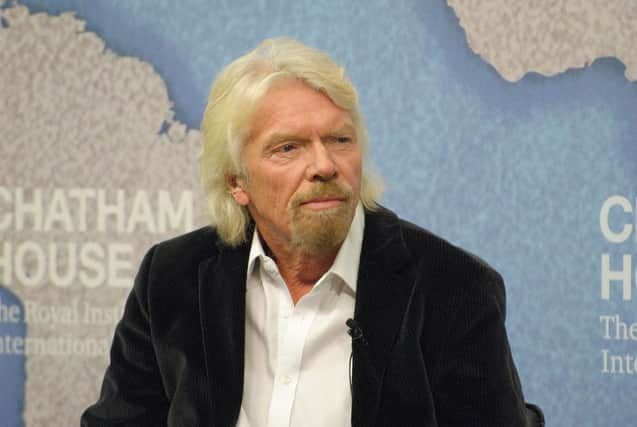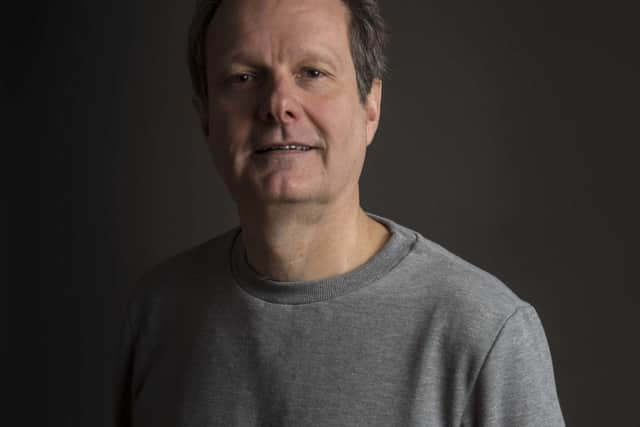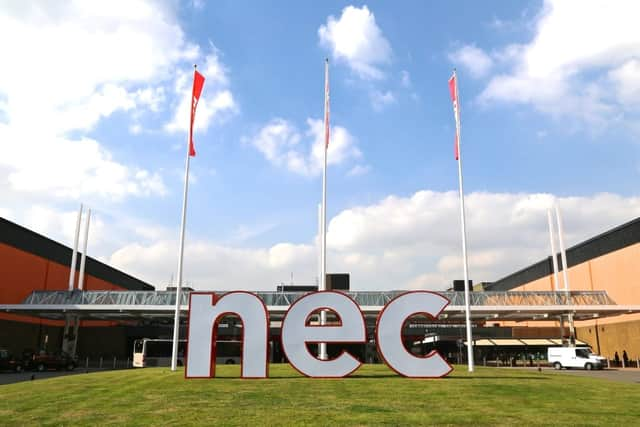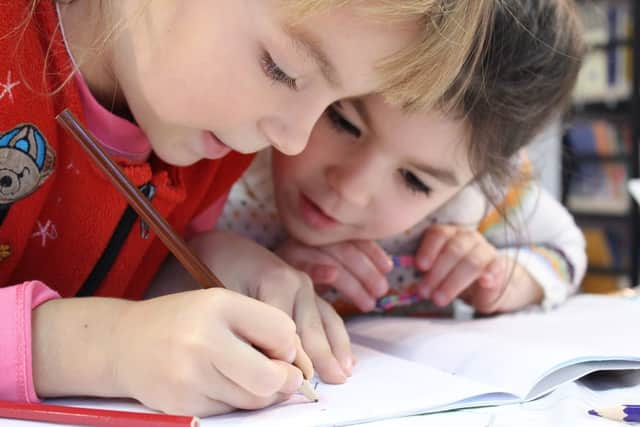The International Celebration of Dyslexia
This article contains affiliate links. We may earn a small commission on items purchased through this article, but that does not affect our editorial judgement.


Celebrities, including Sir Richard Branson (above), Theo Paphitis and Mollie King are being urged to throw their weight behind a groundbreaking UK event that aims to celebrate dyslexia as a gift.
Sir Richard Branson, Theo Paphitis and other celebrities with dyslexia are being urged to support the inaugural International Celebration of Dyslexia (ICD) – the world’s first event to recognise the learning disorder as a “gift”.
Up to 16,000 people are expected to attend next year’s conference, which aims to “shatter the myth” that the condition is a “curse”.


Unlike existing events, which focus on ‘coping’ with dyslexia, the ICD will highlight its benefits and provide visitors with practical strategies to “harness and exploit” them in everyday life.
It also hopes to “smash societal prejudice” by educating the public about the disorder, which affects one-in-10 people in the UK.
The first ICD is set to take place at Birmingham’s NEC next summer. Tickets could go on sale as early as January 2020, with all proceeds going to charity.
Now organisers are calling on high-profile individuals to throw their weight behind what promises to become a major annual event.


Karl de Leeuw, founder of the International Celebration of Dyslexia and author of The Dyslexia Code.
Speaking yesterday event founder Karl de Leeuw issued a plea for celebrities with the disorder, who reportedly include Virgin boss Sir Richard, former Dragon’s Den star Theodoros Paphitis and ex-Saturdays singer Mollie King, to waive their usual appearance fees and champion the event for free.
He said: “The common misconception of dyslexia is that it’s a curse which should be dealt with by encouraging people with the condition think and act more like non-dyslexics.
“This is exactly why the International Celebration of Dyslexia is needed. By bringing together so many in the dyslexic community we can effectively shatter the myth and smash societal prejudice at the same time.


“But in order for this to work we need the support a few high-profile dyslexics such as Sir Richard who are prepared to be our champions and give all dyslexic people a voice.
“The event is envisaged as a not-for-profit venture and so we are simply not in a position to meet the usual appearance fees for these kinds of VIPs, which can run in the tens and often hundreds of thousands of pounds.
“I appeal directly to Sir Richard, Theo and Mollie, as well as other dyslexic celebrities, to waive their fees and join us at the ICD. Their involvement will help break down barriers and inspire dyslexic people across the UK.
It is hoped that the NEC Birmingham will host the inaugural International Celebration of Dyslexia in 2020.


“Likewise, we hope that the NEC Birmingham will come on board as the official venue for the event as it would be the perfect location, situated right in the middle of England.
“As the organiser I would, of course, be forever indebted for their kindness and generosity in getting behind the event. More importantly, however, Britain’s dyslexic community would also be hugely thankful for their pro-bono involvement.”
Dyslexia is a common learning disorder and neurobiological condition that typically affects literacy skills, such as writing, reading, and spelling.
According to the British Dyslexia Association, up to 10 per cent of the UK’s population is dyslexic, four per cent severely so.
Experts have been unable to definitively identify its cause, but most agree that genetic makeup and brain differences could influence a child’s chance of acquiring dyslexia.
Many dyslexics are bright, highly intelligence and articulate but are unable to read, write, or spell at the level expected of them.
Others are especially talented in art, drama, music, sports, mechanics, story-telling, sales, business, designing, building, and engineering.
Sir Richard Branson, Theo Paphitis and Mollie King are reportedly among a string of celebrities with the disorder.
But despite being so common, public awareness and societal prejudice remains “at an all-time low”, according to de Leeuw, one of the UK’s leading equality campaigners for dyslexia.
The International Celebration of Dyslexia aims to help parents of dyslexic children to appreciate that the condition is a gift, not a curse.
He said a significant proportion of children with the disorder – a recognised impairment under the Equality Act 2010 - are unfairly described by their teachers as careless, lazy, or immature.
Many youngsters will also be punished for daydreaming or for their inability to sustain attention – two of the most common symptoms.
Whilst there is no known cure, early detection and evaluation to determine specific needs and appropriate treatment can improve academic success.
But De Leeuw, who is himself dyslexic and has a dyslexic daughter, said most of the educational interventions that are currently available view the disorder as a “curse”, rather than highlighting its benefits.
“Research has shown that people with dyslexia mainly use the right, creative, hemisphere of the brain, while non-dyslexics tend to use the left, logical hemisphere,” he said.
“As a result dyslexics show a tendency to be more intuitive, creative, innovative and perceptive than non-dyslexics. They are gifted with vivid imaginations and a holistic way of thinking that allows them to more easily see the bigger picture and have ‘eureka’ moments.
“They are also often better at reaching the end goal because they are not distracted so much by small details as non-dyslexics and, because of what they’ve had to go through in life, they are usually far more resilient to setbacks.
“It’s no surprise, then, that research has shown that entrepreneurs are five times more likely to be dyslexic. The gift of dyslexia gives them both the vision and will to succeed.”
The ICD is the culmination of 10 year’s research and aims to help dyslexic adults and parents of dyslexic children to appreciate that they or their child have a gift.
Karl de Leeuw, who is dyslexic himself, says society urgently needs to change its negative perceptions of dyslexia.
De Leeuw, whose 2017 book The Dyslexia Code is considered essential reading for those with dyslexia, said it could take place in August or September of next year subject to receiving celebrity support.
It is the first event of its kind and will, in coming years, become what organisers call a “festival of dyslexia” that will include music, art and sporting competitions.
Should the inaugural event proceed as planned, de Leeuw said it would take place at the NEC, a venue that could accommodate 16,000 parents and children aged eight and over. Ticket prices are expected to be around £30 per person with 100 per cent of proceeds going to the SparkleMalawi.org charity.
The all-day programme, which will be streamed live worldwide on YouTube, will consist of a variety of expert speakers, some of which have already confirmed their involvement.
But in order for the inaugural event to “capture the public’s attention”, de Leeuw said the involvement of high-profile celebrities with the disorder are “vital”.
“Figures such as Sir Richard and Theo Paphitis are ideal role models for the dyslexic community as they have used the gifts of dyslexia in such incredible ways,” he added.
“Their involvement in the ICD would help all dyslexics, and especially children, to appreciate that they also have this gift and can likewise achieve great things with their lives.
“And to the wider, non-dyslexic community, it would send a clear message that society needs to urgently re-evaluate its views of dyslexia and get behind nurturing these talents, to the benefit of all.
For further information about The International Celebration of Dyslexia (ICD) event, or to get involved, visit the ICD website at www.icd.world